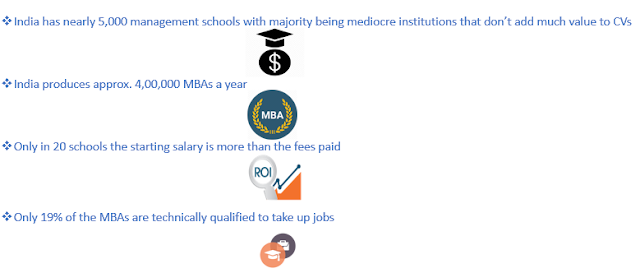The ongoing debate about whether the agricultural sector will save the day for the Indian economy when there is rapid spread of the pandemic? This is a year in which the wider economy is expected to contract, with agriculture expected to continuously grow.
Tractor sales in India soared
22.5% to 92,888 units in June 2020. In June 2019, it sold 75,858
tractors. Does this mean a recovery in the rural economy? Can the rural economy
push the Indian economy ahead in the coming months?
If we compare sales from June 2020 with sales from June 2019, it suggests a revival in the rural economy. What we need to consider though is that the period between April and June is the traditional tractor sales season. Sales from April to June 2020 dropped 13.7 % to 1,65,156 units relative to last year. That's the lowest in four years. High June sales is also due to the pent-up demand, considering the April and May lockdowns. Only if the tractor sales figures remain robust in the months ahead, then we can suggest a marginal recovery in rural economy.
Following the lockdown and
disruption caused by coronavirus, tractor sales did not decrease as much as
other vehicles such as two-wheelers and cars. This is mainly because the
agriculture sector was not as badly affected by the pandemic as the other
sectors with strong rabi crop harvest and a good monsoon season helped boost
the sale of tractors, government cash assistance for farmers and funding
availability further increased the growth momentum.
- Escorts announced 9.5% growth from 4,860 units in July 2019 to 5,322 units in July 2020
- Mahindra & Mahindra’s Farm Equipment Sector reported 27% growth from 19,992 units in July 2019 to 25,402 units in July 2020
- Sonalika Tractors announced 71.7% growth in domestic sales to 8,219 units, compared to a year ago
The Center has provided an increased distribution of Rs 1.5 lakh crore cash in rural India by the purchase of crops at MSP and other benefit schemes, according to Citibank.
The farmers had a good rabi crop harvest including better yield they are queuing up to buy tractors in cash. A normal tractor costs just about Rs 5 lakh, and manufacturers give preference to cash-paying farmers. Not a lot of farmers are currently applying for loans to purchase tractors. In addition to buying agricultural goods such as wheat at minimum support prices (MSP), some state government such as Chhattisgarh and Madhya Pradesh have given farmers incentives, leaving them with a significant amount of cash they also have received good amount of bonuses thus demand for tractors is such that the manufacturers running their units at full capacity.
Besides these, waiver of farm
loans by states like Maharashtra also helped farmers loaded with cash.
Companies plan to hit maximum capacity in August, after fixing supply chains
that collapsed in the months-long lockdown to contain the coronavirus. But it
should be noted that the increased tractor sales merely indicate that extremely
rich farmers are doing well. They do not represent the state of the
agricultural economy as a whole nor the rural economy in this regard.
There's more to the agricultural economy than just rice and wheat. As supply chains have broken down, the hotels and restaurants have been shut down, everybody, from vegetable growers to fruit growers to dairy farmers and poultry farmers had a tough time in recent months. Given their perish ability there are no MSPs for vegetables and fruits. Here it is worth mentioning that since 2012-13, total horticulture production has surpassed food grain production, from vegetables to fruits, spices, flowers, honey to plantation crops. Therefore, it is not right to say that the whole agricultural economy has been doing well there are many farmers out there with very little government support.
To sum up its difficult to say
that increased tractor sales will help in reviving the economy, though rural
economy may end up being in a better shape than the urban economy during the
course of this year, but it is not in a position to drive growth across the
overall economy











